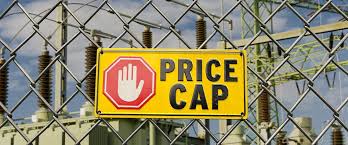Finding Safe Harbors Under OFAC’s Price Cap Regulations (Part III of IV)

The Biden Administration recognizes that the Russian Price-Cap Policy imposes serious burdens on U.S. energy companies and industries that provide ancillary services to the energy sector. It is even more complicated given the EU framework and another set of guidance related to the oil price cap. To ameliorate this burden, OFAC has set out detailed guidance on regulatory “safe harbors” for organizations and individuals affected by the price cap. The guidance itself contains several important principles and reflects a number of best practices regularly applied in the compliance field. Viewed in this context, the guidance is a valuable resource for legal and compliance professionals.
The guidance explicitly states that it “establishes a safe harbor from OFAC enforcement for U.S. service providers that comply in good faith with a recordkeeping and attestation process.” The recordkeeping and attestation process is designed to permit each participant in the supply chain of Russian oil shipped via maritime transport to demonstrate or confirm that the Russian oil has been purchased at or below the price cap. U.S. persons must ensure that refiners or other purchasers in third countries that have not prohibited the import of Russian oil provide documentation showing that the Russian oil was purchased at or below the relevant price cap.
Energy service providers are divided into three (3) categories, each of which has different compliance requirements.
Tier 1 Actors: Actors who regularly have direct access to price information in the ordinary course of business, such as commodities brokers and oil traders, are “Tier 1 Actors.” To achieve safe harbor status, Tier 1 Actors must retain documents showing that Russian oil was purchased at or below the relevant price cap. Such documentation may include invoices, contracts, or receipts/proof of payment.

Tier 2 Actors: Actors who sometimes request and receive price information from their customers in the ordinary course of business, such as financial institutions, ship/vessel agents, and customs brokers, are “Tier 2 Actors.” To achieve safe harbor status, Tier 2 Actors must, to the extent practicable, request and retain documents that show that Russian oil was purchased at or below the relevant price cap. When not practicable to request and receive such information, Tier 2 Actors must obtain and retain customer attestations, in which the customer commits that for the service being provided, the Russian oil was purchased or will be purchased at or below the relevant price cap.
Tier 3 Actors: Actors who do not regularly have direct access to price information in the ordinary course of business, such as insurers, P&I clubs, shipowners, and flagging registries, are “Tier 3 Actors.” To achieve safe harbor status, Tier 3 Actors must obtain and retain customer attestations, in which the customer commits that for the service being provided, the Russian oil was purchased or will be purchased at or below the relevant price cap, for example as part of their annual insurance policy renewal process or updates to their insurance policies. This can be done through a sanctions exclusion clause written into or already included in policies or contracts.
Energy market actors who comply with these basic recordkeeping and attestation requirements avoid strict liability in those cases where actors inadvertently become involved in transaction where Russian oil is sold above the applicable price cap due to false records provided by actors who act in bad faith or make material misrepresentations. As an example, OFAC cites a situation where a service provider without direct access to price information reasonably relies on a customer attestation, and retains the attestation, that service provider will not be held liable for sanctions violations attributable to those acting in bad faith who cause a violation of the determination or an evasion of OFAC sanctions. Note that this hypothetical assumes there are no other indications that the company had reason to know the oil was of Russian origin.
As such, OFAC would not pursue a penalty against a U.S. service provider that reasonably relies on the documentation or attestations described above, unless the U.S. provider knew or had reason to know that such documentation was falsified or erroneous or that the Russian oil was purchased above the relevant price cap. For example, where a U.S. service provider without direct access to price information reasonably relies in good faith on a customer attestation, that service provider will not be penalized for potential sanctions breaches attributable to the conduct of an actor who causes that U.S. person to unknowingly violate the determination.

To be afforded the safe harbor, U.S. service providers must retain relevant records for five (5) years, in accordance with 31 CFR § 501.601.
Any person who evades, avoids, causes a violation of, or attempts to violate the determination is likewise in violation of the prohibition and could be subject to civil or criminal enforcement action. For example, persons that make purchases of Russian oil above the price cap and that knowingly rely on U.S. service providers who provide covered services, or persons that knowingly provide false information, documentation, or attestations to such a service provider will have potentially violated the determination and may be a target for an OFAC enforcement action. Other such examples could include using side deals to obfuscate the “real” purchase price paid by an intermediary or the ultimate consignee, or otherwise engaging in deceptive activity to deal in Russian oil purchased above the relevant price cap.














